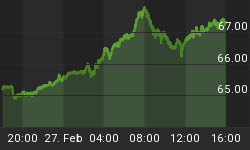Nikkei Kinyu "Market Eye" Column., 26th September 2003
Japan is experiencing a cyclical upturn, which the optimists hope will turn into a sustained recovery. The IMF, however, has recently commented that this is unlikely, while deflation remains entrenched. This probably represents the majority view among economists and, sadly enough, such caution seems to be justified.
The Japanese economy suffers from two fundamental problems. First it has a structural savings surplus, arising from its unusual demography, and second it has an over-indebted corporate sector. To cure the first problem, the balance of the economy must change radically in three ways. Investment, which is excessive, must be cut back so that companies can become truly profitable. In addition, the budget deficit must be cut and finally there must be a major expansion of Japans trade surplus.
It is this need for a large increase in net exports that creates international problems. Without a marked rise in Japan's current account surplus, there will not be enough demand to sustain the economy. This is true today, despite the boost to demand given by the huge budget deficit and excess investment. As these are trimmed, demand will fall and an even greater rise in net exports will be needed to prevent the economy slipping back into recession.
It is therefore unsurprising that the current upturn should be driven by hopes of rising exports, which depend in turn on the Ministry of Finance's success in preventing a further strengthening of the yen. This success is, however, the cause of rising complaints from the US, as has been underlined by the comments of the US Treasury Secretary John Snow, during his recent tour of the Far East. Happily, it seems that US pressure is greater on China than Japan.
For Japan to increase its trade surplus it needs a steady improvement in its competitive position. This is why a continuation of the MoF's exchange rate intervention is so important. So long as this continues to keep the yen/dollar exchange rate stable in nominal terms, Japan's competitive position is improving in real terms.
This is because Japan's prices, measured in total terms by its GDP deflator, are falling at over 2% p.a., while US prices, on the same basis, are currently rising at 1.5% p.a. Thus, if the nominal exchange rate is unchanged, Japan's competitive position is improving at around 3.5% p.a. This is extremely helpful and is all the better for not being dramatic. In combination with a pick-up in the world economy, this should be sufficient to keep Japan's net exports growing.
In the meantime, however, the twin problems of over-investment and excess debt remain unaffected. Japan already has a falling number of people of working age and as the baby boomers' generation moves towards retirement, the decline will accelerate. This means that Japan cannot, in the absence of a productivity miracle, expand as fast as countries like the US, where the working population is still growing.
If the US and Japan improve their labour productivity at similar rates, then the US will grow roughly twice as fast as Japan. Naturally enough, this faster growth provides a lot more scope for profitable investment. Despite this, Japan invests much more of its GDP than the US. The result is, inevitably, that Japanese investment is woefully unprofitable.
Despite poor profitability, Japan's companies are currently planning to increase their investments to an even more excessive level. This is helpful in the short run, but the financing of these investments prevents companies from repaying debt.
Japan's excessive debts can be illustrated by looking at the balance sheet of Japanese households. Compared with any other major economy, the Japanese people seem, at first sight, to be very rich. According to the OECD, Japanese households have net wealth which is 200% greater, relative to their income, than their opposite numbers in America.
This apparent wealth is mainly in the form of deposits with the banks and Post Office and, unfortunately, is largely an illusion. These assets of the household sector represent the liabilities of companies and the government. A country is not rich because one half owes huge debts to the other half which it can never repay.
So long as Japan suffers from deflation, the value of these debts rises in real terms and their burden grows. Sadly enough, it is unlikely that this burden can be alleviated other than by a bout of inflation.
For inflation to pick up in Japan, there needs to be either a marked increase in the speed at which prices rise worldwide, or a significant weakening of the yen's exchange rate. At the moment, neither of these outcomes looks at all probable.
The current improvement in Japan's economic position is therefore unlikely to be the beginning of a sustained recovery. The most likely outlook is for the economy to continue to improve while the US and world demand pick up, but unless this generates inflation, the next cyclical downturn will find Japan's companies with even worse balance sheets than they have today and bankruptcies will rise sharply again.















